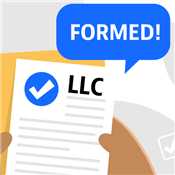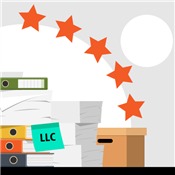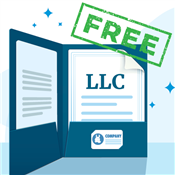Small Business Website Costs
Having a website is essential for a small business. But the costs of setting up one can add up very quickly. Read on to know how much to budget.
 |
Creating a small business website? It can be overwhelming just considering the number of things you need to build one.
Not to mention, it can get expensive pretty quickly. And cheaper options don't always come with good quality features.
But don't worry; we've got you covered. We listed the factors that affect website costs for a small business, so you'll know how much to budget.
Read on to know what they are.
| Domain | $9 to $30 per year |
| Web Hosting | $3 to $400 per month |
| SSL Certificate | $0 to $2,000 per 1-2 years |
| Content | $60 to $25,000 |
| Premium Themes | $50/yr to $1,000 upfront |
| Online Store Integrations | $1,500 per month |
| Marketing | $0 to $1,600 per month |
| Images | $10/mo or $1,000 one-time fee |
| Premium Plugins and Integrations | $0/mo to $10,000 upfront |
| Website Maintenance | $55 to $450 per month |
| Using a Website Builder | Starts at $9 per month |
| Hiring a Professional | $1,500 to $15,000 |
How Much Does a Website Cost For a Small Business?
 |
You can get your own website running for just $1,500 to $15,000. But many factors affect the exact cost of setting up a website.
Generally, you can expect to pay around $2,000 upfront. If you use website builders, monthly payments are around $20 to $30.
But the exact cost will depend on the features you need for your site. Whether you hire people or create the website yourself also affects the overall amount.
Let's break down the top 10 items you need to budget for.
Domain: $9 to $30 per year
Domains are typically business names. To use your business name as a domain, you'll need to register it with a domain registrar.
This usually costs around $9 to $30, depending on the top-level domain you choose. Here are the five most common domains:
| Top-Level Domain | Registration Price | Renewal Price |
|---|---|---|
| .com | $9 to $17 | $15 to $20/yr |
| .net | $11 to $16 | $15 to $18/yr |
| .org | $9 to $14 | $15 to $16/yr |
| .io | $35 to $37 | $40 to $50/yr |
| .co | $7 to $28 | $27 to $29/yr |
Keep in mind that you'll have to renew your domain annually. Otherwise, other businesses can use it as theirs.
Renewals can cost twice as much since you typically get a discount for the first year. So adjust your budget to accommodate the increased price.
Some website builders also offer free domains for a year. This can help you save on upfront costs. You can also transfer domains for an additional price.
If your domain is "mybusiness.com," then ".com" is your TLD, while "mybusiness" is your SLD or second-level domain.
Some of the most popular TLDs are ".com," ".org," and ".net." They're used for commercial sites, organizations, and networks, respectively.
Web Hosting: $3 to $400 per month
Think of your web host as your landlord. With web hosting, you'll be renting a space (through a server) to connect your site to the internet. It can cost $3 to $400 per month.
The first year may come at a discounted price. Web hosting companies typically bill you annually, or every 2 to 3 years.
Here are a few web hosting services to check out:
| Web Host | Starting Price | Unlimited Storage | Unlimited Bandwidth | Free Domain | Free SSL Certificate |
|---|---|---|---|---|---|
| BlueHost | $2.95/mo[1] | ✘ | ✘ | ✔ | ✔ |
| InMotion | $3.94/mo[2] | ✘ | ✔ | ✘ | ✔ |
| HostGator | $3.75/mo[3] | ✘ | ✔ | ✔ | ✔ |
| MochaHost | $3.18/mo[4] | ✘ | ✔ | ✘ | ✔ |
| InterServer | $2.50/mo[5] | ✔ | ✔ | ✘ | ✔ |
| A2 Hosting | $6.99/mo[6] | ✘ | ✔ | ✘ | ✔ |
| TMD Hosting | $2.99/mo[7] | ✘ | ✘ | ✔ | ✔ |
| DreamHost | $4.95/mo[8] | ✘ | ✔ | ✔ | ✔ |
Keep in mind that there are different types of web hosting. Here's a list of what you can get:
- Shared hosting: $3 to $15/mo; your site shares a server with other websites
- Dedicated hosting: $80 to $300/mo; the physical server is used by your business alone
- Cloud hosting: $4 to $400/mo; uses cloud resources (multiple servers) instead of a single server
- VPS hosting: $10 to $150/mo; physical server is shared with other websites but simulates a dedicated server for your site
- WordPress hosting: $3 to $80/mo; hosting optimized for WordPress websites
Be sure to check if the web hosting company also offers a free domain for a year. It's a good way to save money.
Some hosting providers also include a business email with their pricing plans. Using this email (that has your domain name like hello@mybusiness.com) can create more trust with your audience.
SSL Certificate: $0 to $2,000 per year or two
SSL stands for Secure Sockets Layer. And an SSL certificate shows that your site supports encrypted connections.
An SSL helps secure online transactions. The certificate lets users know that your site is safe to use. Because it keeps information private, it's essential for building trust with your visitors.
You'll find a lock button on the address bar if a site is secure. Click on the lock to view a website's SSL certificate.
There are 3 types of SSL certificates. You can choose from Extended Validation (EV), Organization Validation (OV), and Domain Validation (DV).
The price range is wide since each type has something different to offer. EV and OV will provide more trust to your site visitors, but a DV can be enough.
Some SSL services that are great for small businesses are DigiCert, Sectigo, GeoTrust, SSL.com, and AlphaSSL.
| SSL Service | Starting Price | Types of SSL |
|---|---|---|
| DigiCert | $289/yr[9] | DV, OV, EV |
| Sectigo (formerly Comodo) | $99/yr[10] | DV, OV, EV |
| GeoTrust | $149/yr[11] | DV, OV, EV |
| SSL.com | $49/yr[12] | DV, OV, EV |
| AlphaSSL | $49/yr[13] | DV |
Content: $60 to $25,000
Your website is an empty shell without content, so investing in good content will do you well. But the exact cost will depend on the writer or agency you hire.
Here's a list of the common rates:
- Web pages: $100 to $500 per page
- Landing pages: $500 to $25,000 per page
- Blog posts: $60 to $2,000 per post; depends on the length and complexity of the article
- SEO services: $1,000 to $8,000/mo; other companies charge per project
Take note that some writers charge per hour. But it's also common to charge per word. Another option is to write your site's content yourself, especially if it's your expertise.
But you also have to be knowledgeable about the best copywriting techniques and search engine optimization (SEO) practices. They're important if you want your page to rank high on search engine results pages (SERPs).
You can expect to pay around $100 to $500 per page. The five essential pages of a business website include the home page, about page, contact page, blog, and products page.
Keep in mind that the cost of each will differ since their content varies. It also depends on the freelancer, agency, or web design firm you hire.
Small Business SEO Services
Sure, putting your customers and readers first is always a priority. But your content won't even reach them if search engines don't show it to them first.
SEO services are all about optimizing your content for search engines. This usually means updating keywords, pages, and dashboards. SEO specialists also practice link-building strategies. That way, your readers can view one article after another.
A content management system (CMS) is an application that helps you manage content with other contributors. Your website will likely use one of the three types: open-source CMS, proprietary CMS, and software as a service (SaaS) CMS.
One of its main benefits is that you and contributors don't need to know how to code to manage it. Take drag-and-drop website builders as an example. Through them, you don't need to rely heavily on front-end developers to make changes.
Premium Themes: $50/yr to $1,000 upfront
Nowadays, building a website from scratch through code is much less common. Web designers now typically just use templates to start, then customize from there.
If you're using a website builder, premium themes can cost $50 to $360/yr. Some themes only require a one-time payment, which is around $200 to $1,000 upfront. Although expensive, these themes come with added support and other features.
You can always opt for a free theme to save money, but these may be more limited compared to paid options.
Online Store Integrations: $1,500/mo
If you're a retail business, eCommerce integrations are essential. The cost varies per provider and specific feature you're paying for. That said, a budget of $1,500/mo can cover most of what you need.
Website builders for eCommerce generally have all the features you need to set up your online store. The only costs you need to worry about are the monthly or annual payments and add-ons.
Their pricing plans are also usually cheaper than paying for individual software.
How much does an eCommerce website cost?
If you're not using a website builder, here's the average you can expect to pay:
- Shipping and fulfillment software: $0 to $300/mo; many providers require you to contact them for a quote
- Payment gateways: Transaction fees vary and are typically deducted per sale; PayPal costs 3.49% + $0.49 per transaction;[14] Stripe costs 2.9% + 30¢ per transaction[15]
- Inventory management: $200 to $1,000/mo
- Customer relationship management (CRM): $0 to $120/user/mo
Keep in mind that not all websites have eCommerce functionality. And creating online stores is often more expensive than creating sites without them.
If you're creating your own site through a website builder, be sure to choose an eCommerce plan.
Marketing: $0 to $1,600/mo
Creating a great website will do no good if no one is there to see it. That's where marketing comes in. This will help you spread the word about your new website, so users can find it more easily.
Setting aside a marketing budget of $0 to $1,600/mo is a good start. But it really depends on the type of advertisements you'll use.
Aside from SEO, you also have pay-per-click (PPC) advertising, email marketing, and social media marketing.
Here's a breakdown for you:
- PPC advertising: $600 to $1,000/mo (or more); you can dictate your own budget as you increase or decrease ad spend; the more common the keywords, the higher the price
- Email marketing: $0 to $1,600/mo; adjusts depending on monthly email sends or number of contacts; you can also set custom pricing
- Social media marketing: $30 to $300/mo; depends on the number of users and social media profiles
Images: $10/mo or $1,000 one-time fee
Your website is going to need some images. You'll need to get a logo designed if you don't have one yet. You'll also need images for your web pages, blog posts, and online store.
You usually need to get a quote from design companies to know how much it'll cost. But you can budget around $10/mo or a $1,000 one-time fee as a start.
- Logo: $0 to $1,000 (upfront); free logo makers are available
- Stock images: $10 to $750/mo; varies in the number of downloads and users
You can also hire photographers for your product photos. Pricing starts at $100 to $200 with freelancers. Photography companies will provide you with a quote.
Premium Plugins & Integrations: $0/mo to $10,000 upfront
There are many free integrations you can use with your small business website. Google Analytics and Google Search Console are some crucial ones.
However, you'll likely need more if you have an online store. Some of the most common integrations are:
- Point-of-sale (POS) systems: $500 to $10,000 upfront; depends on the type of POS, provider, and hardware and software; software comes with monthly payment plans
- Accounting application: $0 to $300/mo; can integrate with your POS; can include features such as invoicing and managing 1099 contractors
- Automatic workflow: $0 to $800/mo; varies on the allowable number of tasks/mo and team members
- Chat apps: $0 to $70/mo/agent or team member; varies on the number of visitors agents can monitor; can include features such as SMS and advanced reporting
Website builders will also have their own sets of integrations or premium plugins. A WordPress site, for example, can access over 60,000 plugins (some of which are free).
Squarespace has a lot less, but is focused on shipping, finance, inventory, and marketing.
Website Maintenance: $55 to $450/mo
The cost of maintaining your website depends on whether you do it yourself or hire a professional.
Some website maintenance agencies can do the work for you for $55 to $450/mo. Freelancers will typically charge you a per-hour rate, starting at $20.
Keep in mind that website maintenance requires a lot of work. Some of the tasks you need to do include:
- Bug fixes
- Website health audit
- Backups of database and site files
- Plugin updates
- Uptime monitoring
- Malware scans
If you're hiring an agency, be sure to check the services they offer. Some features may overlap with other services you already pay for, such as SEO optimization.
If you prefer to do maintenance on your own, you'll need to be tech-savvy. Otherwise, it'll be hard to understand maintenance work. Ongoing maintenance costs can be expensive, but at least you're sure the job's getting done.
Many website builders already come with their own support team to help you out. But there are also plugins you can use. MalCare, for example, is a malware removal plugin for a WordPress site.
Maintaining your website can cost around $55 to $450 per month. Regular marketing, content, and integration costs can range from $60 to $25,000/mo.
Keep in mind that you can always adjust depending on your budget. Website builders, for example, are a lot more affordable and have many features.
Small Business Website Cost Calculator
Although there are a lot of things to consider regarding the cost of building a website, you can get an idea of your initial estimate through the calculator below.
How to Use the Calculator
Here are what the inputs mean and how they affect your budget:
- Approximate Number of Web Pages
Input the number of web pages you plan to have initially. A basic website can have 1 to 5 pages. - Type of Website
E-commerce websites can have additional costs due to integrations. - Domain (priced per year)
Domain extensions, which are the ".com" and ".net" you see, vary in pricing. - Hosting (priced per month)
New and small businesses can go for Shared hosting as the more affordable option. - SSL Certificate (priced per year or 2 years)
SSL Certificates make your website look trustworthy to visitors. Price can start at $49.
Costs of Using a Website Builder: Starts at $9/mo
 |
Website builders make it a lot easier to create a website. They include most of the website fees you need to consider in one pricing plan. Some of them even let you create a website for free.
The best ones offer many features suitable for either an eCommerce, content or a basic website. We came up with a price list you can use to shop around.
Website Builders for eCommerce
Creating an online store is more complicated than creating a content website. These top 3 website builders can make it easier.
| eCommerce Website Builder | Starting Price | Best Feature |
|---|---|---|
| Shopify | $39/mo[16] | Omnichannel selling |
| Squarespace | $23/mo[17] | Modern and responsive design templates |
| Weebly | $13/mo[18] | Free online store features |
Website Builders for Content
These website builders focus on content management. They help you publish blogs, podcasts, news articles, and more.
| Content Website Builder | Starting Price | Best Feature |
|---|---|---|
| WordPress | $9/mo[19] | Thousands of plugins available |
| Webflow | $18/mo[20] | Customizable |
| Web.com | $1.95 (first month), then $19.99/mo[21] | Marketing and SEO features |
Website Builders for Business
Sometimes, your website isn't for selling products online or publishing content. You might want to use it to get more clients or showcase your best projects.
These website builders are good for that:
| Business Website Builder | Starting Price | Best Feature |
|---|---|---|
| Wix | $17/mo[22] | Presets for portfolios |
| HostGator | $4.95/mo introductory offer[23] | Marketing features |
| Zyro | $11.99/mo introductory offer[24] | Free AI tools |
Tips & Tricks for DIY Website Building
Regardless of the type, providing a positive user experience should be at the core of your website's design.
So, here are some tips to keep in mind when building your company website:
- Keep it well-organized.
When building your business website, make sure you have a well-organized navigation bar. This will make it easier for visitors to find what they need without needing to dig deep. - Make it mobile-friendly.
Your website design should be responsive and optimized for mobile devices. That means it should automatically adjust itself to fit the user's screen size, making it easier to navigate.With more than 2/3 of web users[25] accessing the internet using mobile devices, a responsive website is critical for positive user experience. - Make sure it's readable.
Being readable doesn't just mean scannable, easy-to-digest content. It also refers to your website's appearance, like its color palette, font type, and font size. They should make it easier for visitors to read and absorb your website's content.For example, there should be enough contrast between your text color and website background. That way, users won't have a hard time reading what's on the page.
Costs of Hiring a Professional: $1,500 to $15,000
 |
Hiring a professional to design your website can be pricier than doing it yourself. But it can also be a lot more convenient.
It's hard to pinpoint the average cost of website design for small businesses. The price varies per professional web developer or agency. You can budget around $1,500 to $15,000 as a start.
Besides agencies, you can also get a freelance web designer who charges $25 to $100/hr. Be sure to take note of specialties before hiring someone.
Some are great with responsive web design, while others are better at illustrations. There are also web developers who specialize in specific platforms, like WordPress, Shopify, or Magento.
Some website builders also promote their team to help you out. For example, Webflow lets you hire a Webflow Expert from their platform. The same goes for Shopify.
What makes professional website design expensive
Besides their skill and expertise, several factors affect the price of hiring a professional website designer.
Here are some of them:
- Project scope
The bigger your website is, the more expensive it will be. A basic website with only a few pages takes less time to design and build compared to one with a hundred pages or more. - Website type
Different types of websites require different tools and expertise. For example, an eCommerce website is generally more complex and robust than a regular company website or blog. So, it might cost more to build. - Design customization and complexity
Building a custom website from scratch will cost more than one that uses a premade template, especially if you want a more complex design. - Content creation
You can't leave your web pages blank. However, generating content will take time, especially if you're creating everything from scratch.If you have a previous website, you can just transfer its content to your new site and optimize it to save on costs. - SEO and marketing
You need to optimize your web content to make it easier for visitors to find your website. However, this takes more planning and research, which can increase your overall cost. - Maintenance and updates
Regular maintenance and updates are necessary to keep your website's performance in top shape. However, professionals typically charge extra for this. Their rates also depend on how complex and frequent the job is.
How to lower web design costs
Hiring a professional web designer is more expensive than doing it yourself, but there are ways you can lower your costs.
Check out the following tips:
- Start small with fewer pages.
Starting out with just the essential pages will reduce the amount of content you need for your website. It'll also make your website easier and less expensive to maintain. - Use premade templates and themes.
Using a premade template and theme gives your web designer a template to work on. It eliminates most of the time-consuming work involved in building a website. - Use stock images.
Consider buying stock photos if you need images for your website. They may not be unique to your site, but they're cheaper than hiring a professional photographer.You can check out websites like Shutterstock and iStock for affordable stock photos to use.
D.I.Y. vs. Hiring a Professional
 |
There are pros and cons to hiring a professional or creating the website yourself. But the main factor that determines what you should do is your budget.
If you don't have the budget, you'll have to use time as your basis. That means giving yourself enough time to learn everything you need to learn to D.I.Y.
One website can cost around $20 through a website builder. But adding features and outsourcing can quickly increase the price to $2,000 to $3,000 upfront.
More complex websites can even cost $40,000 to $50,000. You also need to factor in content, marketing, integrations, and maintenance.
Hiring a Professional
Pros:
- Your website will be up and running more quickly compared to if you took the time to learn how to do it yourself.
- All-in-one services (i.e., website design and development) make it convenient.
- Professionals can translate what you envision as your website.
- You can have customized features suitable to your needs.
- You'll likely have better and more responsive designs with cohesive branding.
Cons:
- Upfront and maintenance costs are essential but can increase the overall costs.
- You can become too dependent on your web developer if you don't fully understand how your website works.
- It can take some time to make even minor changes (unlike if you know how to do it yourself).
Create Your Own Website
Pros:
- It's a lot more affordable. Some website builders even let you set up an online store for free. There are also many free plugins or integrations available.
- You can understand your website like the back of your hand (based on the things you did).
- You can make changes as you see fit.
Cons:
- If you don't know how to code, what you can do with the website is limited.
- There's a learning curve depending on the platform you use. It can be challenging to design a professional website without much experience.
- It's time-consuming if you have to learn about every feature whenever you add one.
- You have to keep track of and handle the required maintenance yourself.
- Time spent on building a website is time spent away from running your business.
Hiring an expert can be much more beneficial if you have the money. That way, they can do what they do best while you do what you do best - running your small business.
Our Methodology
We first listed the essentials for creating small business websites. Without the domain, hosting, SSL certificate, etc., it's unlikely that you can create a professional one. Then, we took note of the top providers for each and their costs.
We also summarized the costs of top agencies and freelancers. That's how we got the services and range of prices.
As for website builders, we've evaluated the cheapest and best ones for small businesses. You can read our other articles about them to learn more.
What the Experts Say
CreditDonkey asked a panel of industry experts to answer readers' most pressing questions. Here's what they said:
The Bottom Line
Creating a small business website has a wide price range. It can cost you anywhere from $9 (through a website builder) to $40,000 (total cost for a domain, hosting, content, etc).
The exact amount will depend on the features you need. The more customizations there are, the higher the costs. Content and integrations can also take the bulk of your budget.
If you're hiring a professional, make sure you do your research beforehand. Not many web development agencies have fixed pricing for their packages since they base the cost of their services on what you need.
References
- ^ BlueHost. Shared Hosting, Retrieved 01/02/2024
- ^ InMotion. Shared Hosting, Retrieved 01/02/2024
- ^ HostGator. Web Hosting, Retrieved 01/02/2024
- ^ MochaHost. Web Hosting, Retrieved 01/02/2024
- ^ BlueHost. Web Hosting, Retrieved 01/02/2024
- ^ A2 Hosting. Web Hosting, Retrieved 01/02/2024
- ^ TMD Hosting. Shared Hosting, Retrieved 01/02/2024
- ^ DreamHost. Shared Hosting, Retrieved 01/02/2024
- ^ DigiCert. Basic TSL/SSL Certificates, Retrieved 01/02/2024
- ^ Sectigo. DV Domain Validation, Retrieved 01/02/2024
- ^ GeoTrust. TSL/SSL Certificates, Retrieved 01/02/2024
- ^ SSL.com. Basic SSL Certificates, Retrieved 01/02/2024
- ^ AlphaSSL. Cheap SSL Certificates, Retrieved 01/02/2024
- ^ PayPal. PayPal Merchant Fees, Retrieved 03/01/2024
- ^ Stripe. Pricing, Retrieved 03/01/2024
- ^ Shopify. Pricing, Retrieved 03/01/2024
- ^ Squarespace. Pricing, Retrieved 03/01/2024
- ^ Weebly. Pricing, Retrieved 03/01/2024
- ^ WordPress.com. Pricing, Retrieved 03/01/2024
- ^ Webflow. Pricing, Retrieved 03/01/2024
- ^ Web.com Website plans, Retrieved 03/01/2024
- ^ Wix. Wix Premium Plans: Website Plans, Retrieved 03/01/2024
- ^ HostGator. Gator Website Builder, Retrieved 03/01/2024
- ^ Zyro. Zyro Plans, Retrieved 03/01/2024
- ^ US Census Bureau. Internet Access, Retrieved 01/03/2024
Write to Karen Eloriaga at feedback@creditdonkey.com. Follow us on Twitter and Facebook for our latest posts.
|
|
|









